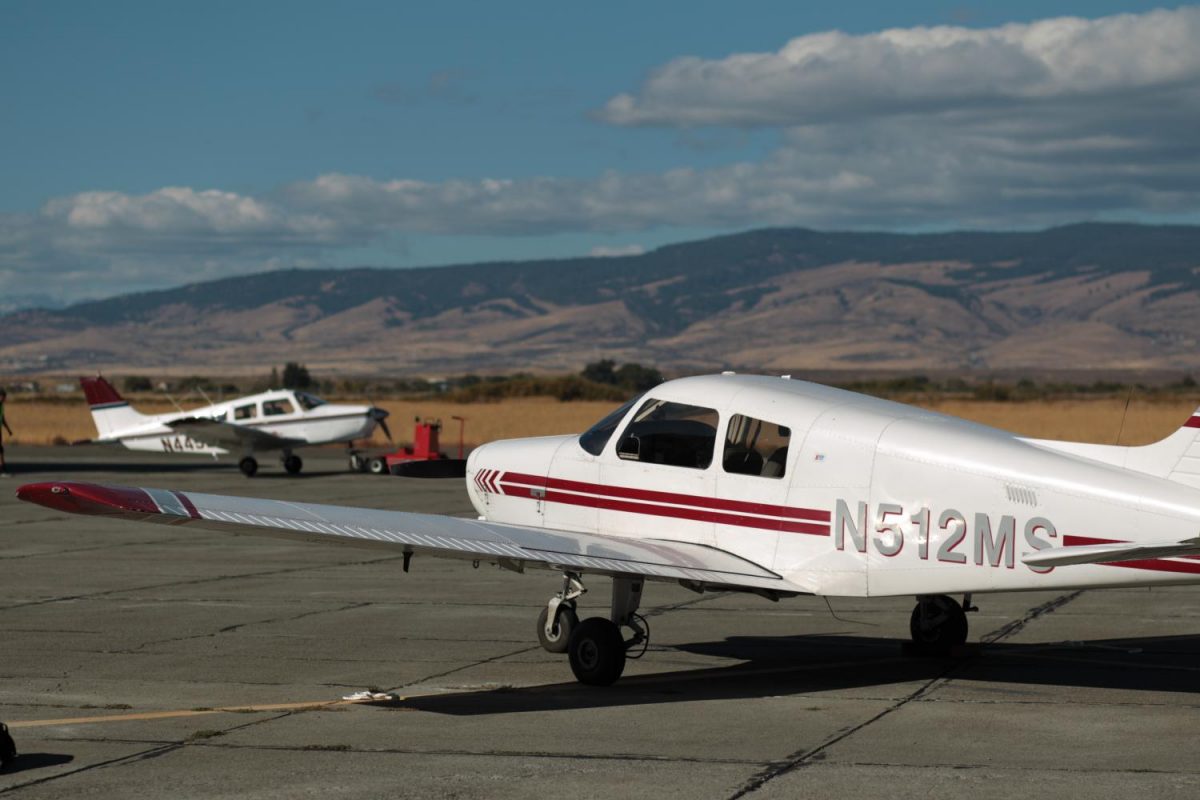CWU Aviation Takes Flight with new Program
September 28, 2017
This fall, CWU is taking over all flight training services, as the university’s five-year contract with IASCO Flight Training (IFT) has come to an end. The university’s decision not to renew the contract with IFT, a flight training program based out of Redding, Calif., will allow CWU to seek out national accreditation, according to CWU officials.
CWU’s Board of Trustees approved the plan on June 30 that will instead use faculty and staff to provide flight training. CWU will now be able to team up with Alaska, Delta and United airlines. This went into effect in June, according to Professor and Chair of the Aviation Department Dr. Sundaram Nataraja (Raj).
Prior to IFT, CWU contracted flight services with a local company, Midstate Aviation.
Former CWU aviation student Trevor Gloor transferred to Big Bend Community College at the end of spring quarter because of problems within CWU’s aviation program.
” The program was disorganized and treated its students like they were not adults,” Gloor said. “There was also lack of funding for the airport as well as few resources.”
Big Bend Community College (BBCC) offers either a two-year DTA (Direct Transfer Agreement) or a four-year Bachelor of Science degree in Professional Pilot, which is taught through CWU faculty on the Big Bend campus in Moses Lake. Since 2006, CWU has had full-time aviation faculty at BBCC with an office, as well as classrooms to teach in, according to Dr. Nataraja.
While the aviation program brings in many students, some have found the program to be unappealing once enrolled.
An aviation student who didn’t want to be identified said that she thought about transferring from CWU because of how unorganized the aviation program was.
“I thought about leaving the university because I was so fed up with the program, but I am going to stick it through because I only have one year left,” she said. “I am confident that Central knows what they are doing because they want the best for their students.”
Five years ago CWU’s aviation program enrolled about 100 students annually who flew nearly 6,800 hours per year. The program activity accounts for about 80 percent of take-offs and landings at Bowers Field in Ellensburg. The contract with IFT, in addition to educating students, designed to ensure the long-term stability of the program. The program has grown from 45 to 162 students between 2014 and 2016, according to Dr. Nataraja.
According to a plan presented to the Board of Trustees, IFT was under contract until August 2019, but notified the university in June of its intent to vacate the contract a year early, in June 2018.
IFT will finish out any students currently enrolled in IFT courses but any student enrolling in a new course will be under the CWU program starting this quarter. This includes more than 60 freshmen entering the new program. The goal is to have any students enrolled with IFT to be finished by next June so that IFT is quickly transitioned out, according to Dr. Nataraja.
CWU will be leasing six aircraft from Ron Mitchell, the owner of Midstate Aviation, and will be looking to purchase another five new planes through Piper Aircraft. Since July, the aviation department has purchased one of these six. After that, CWU plans on putting out a request for quotes on additional planes on an as-needed basis as the program grows, according to Dr. Nataraja.
In 2016, Midstate sold CWU office space and a maintenance hangar. CWU is currently subleasing another hangar through Midstate which is owned by Kittitas County, according to Dr. Nataraja. The university will take over that hangar completely on Wednesday, Nov. 1. CWU also has requested state funding to improve aviation facilities at Bowers Field.
CWU is pursuing accreditation through the Aviation Accreditation Board International. CWU’s program is the only four-year aviation program in the state.
It is estimated that growth in the aviation industry will demand an additional 416,000 new pilots in the next few years, requiring an annual nation-wide investment in pilot training of approximately $3.5 billion.
“I think the program still is the best in the Pacific Northwest and will continue to be as such I am happy with Central taking over flight training,” said a fourth year aviation student who preferred to not be identified , “I’m only disappointed that it didn’t happen sooner.”
Nataraja responded to the comments about the program by saying that “maybe they are correct, maybe not. But this is a new year.” Raj has expressed concerns towards these comments and says that he, and the faculty, are looking towards the future of the new program.


